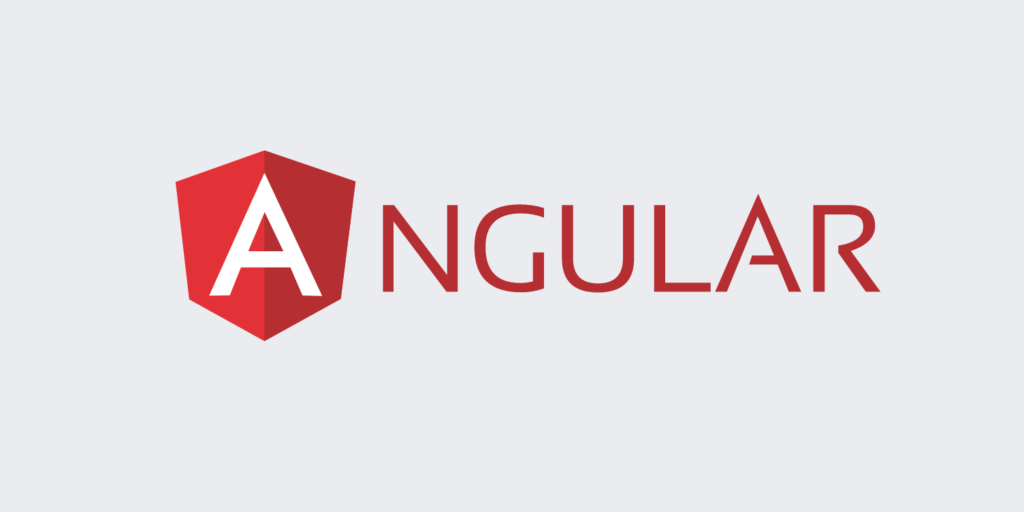Building a web application requires an applicable and supportive framework to run backup functions in the background. But, accurate selection of the framework matters the most given that each framework varies functions in contributing to the web development project.
One of such commonly preferred framework is JavaScript. It is a modern-age framework that has options from various top-level frameworks, from which two of them are Angular and Vue. These two are frontend frameworks having their different key uses due to their distinguished functional characteristics.
However, it can be unclear at times to choose between Vue or Angular for constructing a complete web application. So, it is important to study their differences and how it can be advantageous or challenging to develop from each of these powerful and preferable JavaScript frameworks.
Let’s deep dive further into their overview, Differences, Pros, and Cons.
Overview Both Angular vs Vue
What is Angular?

Angular is an HTML and TypeScript-based JavaScript framework that utilizes components for developing extensive web applications. TypeScript-enabled libraries consist of numerous templates to modify according to the web application needs.
Angular benefits majorly in web application development by facilitating diverse functionalities to integrate them into website applications. Moreover, it provides extensible web application development where the functions can be written to be accessible by multiple profiles simultaneously and it manages the data. These codes can also be repeatedly executed for other web application projects as well. It is used by dedicated angular developers for business requirements to provide custom angular development solutions.
What is Vue?

Vue is a lightweight, agile platform encompassing several tools to construct ductile web applications. It is an open-source, progressive framework that is used for creating Single Page Applications and web UI.
This program allows the alteration of the code design in the background without affecting the application’s functionality. Due to its nature of dissociating the structure, Vue offers customized modules and visual components to modify web application functionalities.
Top 7 Differences Between Angular vs Vue
Angular and Vue both are JavaScript Frameworks deployed for single-page applications and engrossing User Interfaces. However, both have some exquisite characteristics from each other in some ways.
Hence, below both Frameworks’ dissimilarities are stated considering what they provide and where these JavaScript programs have their flaws.
1. Scalability
- Angular has in-built tools for every web application development, which are utilized by dedicated Angular developers to make it scalable. Moreover, its meticulous code structure keeps consistency in task execution.
- Vue is a lightweight framework that has its own community, i.e., it has limited resources such as plugins, libraries, etc. Due to this, developers face difficulty in building scalable applications.
2. Security
- Vue has a flexible process of error and cryptography analysis which is the reason for flawed security. It increases the chances of vulnerabilities in the application’s security.
- Due to Angular being a detail-oriented type system and having regulation over handling errors, it compresses the application’s security to restrict common cyber vulnerabilities.
3. Ease of Testing
- Angular contains in-built testing tools of highly standardized mechanisms to run end-to-end tests on every singular component in isolation for checking the application’s efficiency.
- Vue has a flexible approach to testing the frameworks with its innate tools. However, it needs to have more regulated flexibility in every unit testing since it still lags the standardization.
4. Learning Curve
- Vue consists of plain HTML templates using JavaScript, which reduces the effort, time, and complexity of understanding the Vue framework for the developers.
- Angular, on the other hand, has multiple topics to cover such as Model View Controller (MVC) for studying the whole Angular framework. But once learned, developers can effortlessly create custom angular development solutions for enterprises.
5. Application Capacity
- Angular is a medium-scale framework used for large-scale enterprise applications. That means its applications are between 200 KB to 500 KB. It makes Angular with heavy storage requirements.
- Vue is developed from a part of Angular. Hence, it is a mini, lighter framework requiring third-party integration given to its limited in-built functions and distribution of each element.
6. Syntax and Complexity
- Vue’s Syntax and code structure is simplistic, precise, and understandable by the developers and thus, it is less complex to execute for small-scale applications.
- Angular has strict coding rules due to which the developer has to identify errors and type carefully even for a simpler task. Hence, Angular has complexity in implementing the syntax.
7. Performance Pace
- Angular’s Ivy Processor version allows high responsiveness by decreasing HTML and application components utilization by DOM. It speeds up the singular tasks of different units.
- Vue has a lazy loading feature, minimizing the virtual documentation process and third-party integration to increase the application’s loading speed. However, Vue’s unpredictable expansion in functionality disrupts the performance rate
Advantages and Disadvantages of Angular vs Vue
Top 5 Advantages of Angular
1. Google Support
Google created Angular in 2016 as an open-source platform which later was used for building user interfaces and supportive web applications. Every year, Google launches a version for better functions in Angular such as documentation, tools and libraries, and many more.
Website Support And Maintenance
2. Accelerated Performance
Angular decreases the DOM process by distributing streams of data of singular units. Also, it has an extended library called ReactxJS for optimization of the streams of data distribution and detecting the performance rate.
3. TypeScript Support
TypeScript is a more rigid typing program than JavScript to provide improved tools and libraries in Angular. It has the capability to simultaneously test while typing the codes, increasing efficiency to test the application.
4. Progressive Framework
Angular is a progressive framework, i.e., the cross-platform enabling program for web application development for random operating systems and devices to support commonly accessible functions.
5. Directives
Directives are building blocks of Angular which extends HTML elements to create and reuse custom behaviors. These components are then segregated and used for numerous tasks execution, enhancing the application performance.
Disadvantages of Angular:
1. Lack of SEO Implementation
Angular is a client-based server program, which creates Single Page Application (SPAs) later on restoring in the browser. Due to this, crawlers become unavailable and then become a barrier to SEO choices.
2. Steep Learning Curve
Angular is not one concept specific. It is a humongous framework that new developers in this community would find setbacks while covering up most of the Angular basics. Dedicated Angular developers who have had expertise in this for ages do not face difficulty while coding through Angular.
3. Uniform Documentation
Due to Angular containing strict regulations for Command Line Interface (CLI) without any single error, the developers face complexity while implementing a simpler task in the documentation. These rules stretch the developers’ time to provide custom angular development solutions for the project.
Top 5 Vue Advantages:
1. Accustomed
As the Vue framework integrates and utilizes third-party applications, it expands its functionality on its support due to its limited in-built functions. Thus, Vue contains a smaller storage capacity compared to Angular.
2. Readable Templates
Vue is a lighter version of Angular and due to that, it consists of clear and simple syntax. Its code design too does not require much to be customized or typed. This makes Vue libraries and resources understandable for the developers.
3. Virtual DOM
Vue utilizes virtual DOM (Document Object Model) for reducing the loading time of the document and the page. In this way, it also autonomously reduces the server-side execution.
4. Data Binding
Vue executes two-way binding for synching the data in all different components. A custom attribute is known as the prop is used for assigning it to any component that utilizes one-way data binding.
5. Pure Javascript
JavaScript solely requires HTML structure to be typed for executing an application. Vue is a sheer JavaScript framework, composing it as the easiest way for the developers to read and write the application design.
Vue Disadvantages:
1. Insufficient Capacity
Vue has a limited community of developers where it has limited sources. Also, being that it has limited tools and functions, it has to integrate with third-party apps. Hence, it is not applicable to large-scale apps.
2. Limited Plugins
Given that Vue has limited functionality, it is due to limitations in Vue’s fewer plugins. Fewer plugins means the framework does not have enough available functions and hence developers cannot solely rely upon the program. For that reason, they have to opt for other languages to fulfill the project requirements.
3. Flexibility Flaws
Flexibility in codes reduces the time consumption of the developers as it provides them a lot of web development templates. Though, coherent execution of these codes results in flaws and disparities while running the application.
Takeaway from Vue Vs. Angular
Vue and Angular, both make excellent frontend application frameworks of JavaScript since both have amplitude functions to offer in web application development. The only differences are their versions and functional aspects that vary with the application’s scalability.
Looking at the advancements, Angular is upgrading its version every year with the latest functions for web application development. It exhibits a better user interface and frontend tools for advanced features. While it hasn’t been long since Vue has been introduced in the web application development industry, it is still being popularly used for small-scale apps.
Hence, it absolutely depends on the requirement and purpose of the application development project to choose the appropriate framework between Vue Vs Angular. For large-scale and robust web applications, approach an AngularJS Development Company for a comprehensible development process.
FAQs
What Should You Choose: React or Angular or Vue?
Based on various basic aspects such as project requirements, applicable tools and resources, personal outlook, and most importantly, understanding of the frameworks, any of these three Javascript frameworks can be selected according to their suitability with the web application development criteria.
The basic differences between these three are that React is a library for user Interface, Angular is an extensive frontend development framework, and Vue is a progressive framework.
Is Vue easier to learn than Angular?
Vue has a simpler syntax and less structural complexity because it is a plain JavaScript framework that requires nothing but HTML input in the web application design. Whereas, Angular has several other concepts that need to be learned and implemented precisely such as MVC. All these concepts compose the Angular rules regulated for making fewer errors by the dedicated Angular developers.
Hence, it can be said that Vue is easier to learn than Angular. Although it primarily depends on the type of web application development project.
Does Google Use Angular?
Angular is developed by Google for using it as a tool for their own products and services. It widely applies it for its publicly available products such as Google Analytics, Google Console, Google AdWords, etc. We can say that Google’s most supportive operations are backed by Angular.
Read more:
- Magento Vs. Shopify: Which ECommerce Solution Is Best For You?
- Node.Js Vs Golang: Which Is Better For Your Project?



